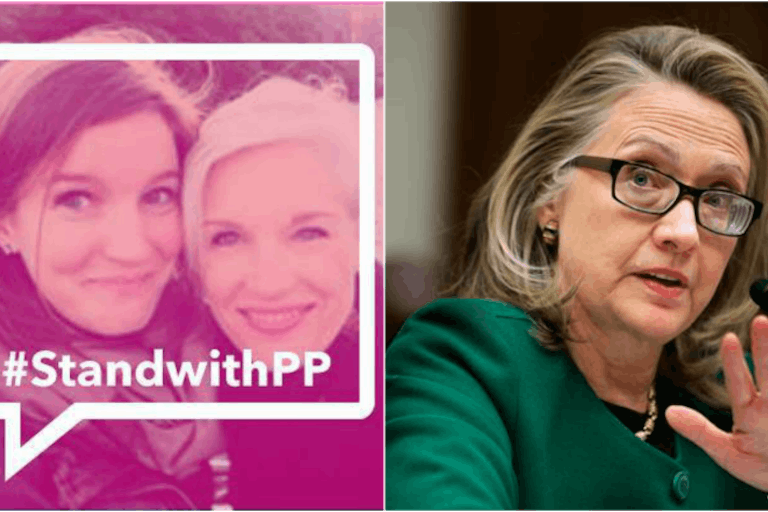
Planned Parenthood endorses Hillary Clinton: She’s everything we’ve ‘believed in and fought for’
Cassy Cooke
·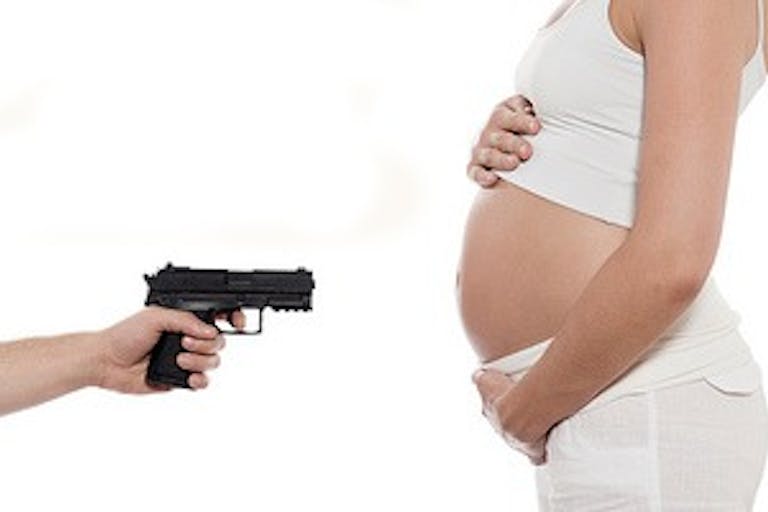
Human Rights·By Catherine Livingston, PhD
Mom seeks justice after murdered unborn son refused status as person
Brady Amendment campaign
When is murder not murder? Heather Surovik found out that when her baby, who was close to birth, was killed by a drunk driver, it wasn’t actually murder because Colorado law says her baby wasn’t a life.
MSNBC added to the tragedy with a report weighing in with the pro-abortion offense.
The basics are clear, as MSNBC points out:
To Surovik, that was a homicide. But not according to Colorado law. “I was told that because my son did not take a breath, he was not considered a person,” she said. “He was considered part of my injuries—a loss of a pregnancy.” In her case, a repeat drunk driver named Gary Sheats pleaded guilty to driving under the influence and vehicular assault. “Those charges didn’t matter to me because they didn’t involve my son,” Surovik said. “I wanted to figure out a way to get justice.”
This injustice led Surovik to fight the law with the law, and this November, Amendment 67 – known as the Brady Amendment – will appear on Colorado ballots. If it passes, it will redefine criminal code in CO:
In the interest of the protection of pregnant mothers and their unborn children from criminal offenses and negligent and wrongful acts, the words ‘person’ and ‘child’ in the Colorado Criminal Code and the Colorado Wrongful Death Act must include unborn human beings.
Surovik met Personhood USA directors in Colorado and decided to work with them to help collect the signatures needed for the ballot measure.
Article continues below
Dear Reader,
In 2026, Live Action is heading straight where the battle is fiercest: college campuses.
We have a bold initiative to establish 100 Live Action campus chapters within the next year, and your partnership will make it a success!
Your support today will help train and equip young leaders, bring Live Action’s educational content into academic environments, host on-campus events and debates, and empower students to challenge the pro-abortion status quo with truth and compassion.
Invest in pro-life grassroots outreach and cultural formation with your DOUBLED year-end gift!
While there are laws designating the death of an unborn baby as homicide or feticide in 38 states, there is no such law on the books in Colorado – a state which has also rejected a personhood amendment twice. An October Washington Post report on the Brady Amendment notes the frustration of abortion supporters who are crying foul, claiming that the real injustice isn’t to Surovik and her loss of her baby, but to all the women who may need an abortion.
“This is the third time we’ve seen a personhood ballot measure, and we don’t know what they don’t understand about the word ‘no’,” said Karen Middleton, executive director of NARAL’s Colorado branch. “Each time, there’s an effort to reframe the debate or suggest the debate is somehow different. … It may be in a different package, but it’s the same basic attempt to ban abortion even in cases of rape and incest.”
Ultimately, abortion proponents say the Brady Amendment is dangerous because it amends the entire criminal code. Moreover, Planned Parenthood and the Center for Reproductive Rights argue that penalizing criminals for such deaths as Brady’s might threaten a woman’s right to her birth control.
[T]he measures could have wide-ranging effects on women’s reproductive rights, extending beyond abortion. For instance, if an embryo is considered a person, any contraceptives that prevent an embryo from implanting in the womb could be considered illegal. (The FDA says the morning-after pill and the copper IUD may prevent implantation, although the science behind the morning-after pill is hotly contested.) Opponents also say personhood could jeopardize in-vitro fertilization, as unused embryos are often discarded during the process.
The abortion industry’s desperate cry to protect their birth control and cover their fears shows that their concern is neither for justice nor for women’s health. They would rather throw Brady back in front of the car than acknowledge that the laws do not actually protect him as a person. As Personhood USA’s Jennifer Mason says, “If Brady had been in the accident at just one hour old, it would have been murder.”
Abortion advocates staunchly affirm that a life becomes a life by choice, yet when a woman’s choice is removed from her by a criminal, they then defends the rights of other women instead of supporting justice for a woman’s choice.
Whether Surovik and Personhood USA will manage to bring some justice to Brady’s loss of life as well as the many others who would find justice through this amendment remains to be seen in November. But for Surovik, it’s a battle she hopes will ultimately bring healing to future victims of such crimes. She also wants an acknowledgement that the viable child inside her could have lived had someone not committed a crime.
Live Action News is pro-life news and commentary from a pro-life perspective.
Contact editor@liveaction.org for questions, corrections, or if you are seeking permission to reprint any Live Action News content.
Guest Articles: To submit a guest article to Live Action News, email editor@liveaction.org with an attached Word document of 800-1000 words. Please also attach any photos relevant to your submission if applicable. If your submission is accepted for publication, you will be notified within three weeks. Guest articles are not compensated (see our Open License Agreement). Thank you for your interest in Live Action News!

Cassy Cooke
·
Human Rights
Angeline Tan
·
Human Rights
Bridget Sielicki
·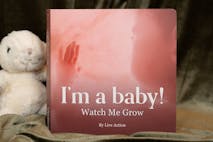
Human Rights
Carole Novielli
·
International
Angeline Tan
·
Human Rights
Nancy Flanders
·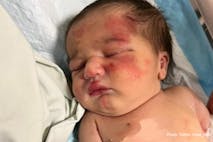
Human Interest
Catherine Livingston, PhD
·
International
Catherine Livingston, PhD
·
Newsbreak
Catherine Livingston, PhD
·
Human Interest
Catherine Livingston, PhD
·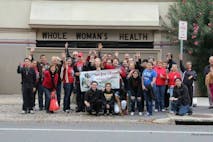
Human Interest
Catherine Livingston, PhD
·